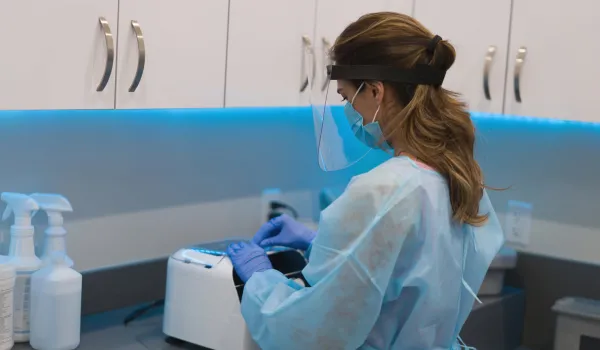Concorde Staff

Concorde's campuses in Miramar, Fla., Jacksonville, Fla. and Tampa, Fla. will begin offering associate degree programs in Surgical Technology (ST) next month. A fourth Florida campus, in Orlando, will follow suit in May. Concorde Dallas campus is scheduled to begin offering an ST degree program later this year.
Combine that with ST degree programs already in place in North Hollywood, Calif., San Diego, Aurora, Colo. and Grand Prairie, Texas, and that's nine of Concorde's 13 campuses that have Surgical Technology programs that are associate degree programs. The other four campuses offer diploma programs, which are shorter in duration but still provide all the training necessary to become licensed.
But the trend appears to be toward ST degree programs.
Surgical Technology accreditors changing requirements
According to Gerald Hale, AAS, CST, ST Program Director at Concorde's campus in Portland, Ore., all institutionally accredited Surgical Technology programs are going to be required to move to an associate degree program by the year 2021. This is being mandated by the Commission on Accreditation of Allied Health Education Programs (CAAHEP), Concorde's ST programs' programmatic accrediting body.
"Though some employers might prefer an applicant with an associate degree, the change is not being mandated by employers," Hale said. "... the move to an associate degree will benefit us in the long run. It helps us to be more competitive with other programs in our area."
Mercedes Alafriz, Dean of Clinical Education for Concorde Career Colleges, said, "Concorde is taking a proactive approach to them ... the mandate of a minimum credential of an associate degree within the next five years. The changeover ... will make our students and graduates more competitive for clinical rotations and jobs."
Some Surgical Technology facts
The major differences between an ST diploma and degree program are the duration - a degree program takes anywhere from 1-3 more months to complete. The degree program includes general education courses, such as English composition, college algebra and general psychology, in addition to program-specific coursework.
In January 2013, the Association of Surgical Technologists adopted the Associate Degree Concept that reads, in part: the Association of Surgical Technologists, Inc. declares the Associate Degree in Surgical Technology to be the preferred educational level for entry-level practice. AST forwarded its recommendation to CAAHEP.
A couple of prominent publications recently pointed out the benefits of an ST Associate Degree.
- Being a Surgical Technologist is ranked No. 9 on Best Jobs with an associate degree by Monster.com.
- U.S. News and World Report noted that Surgical Technologists who have completed an accredited program will have the best job prospects. And, as noted, the CAAHEP will start requiring in the next five years that programs offer degrees to be accredited.
Surgical Technologists can expand career goals
Surgical Technologists with associate degrees might also find greater upward mobility in the workforce, according to some.
"Although a diploma is a quicker route for obtaining credentials to transition into the industry, an associate degree can afford an individual the opportunity to expand their career goals," said Denise Perez, AS, CST, ST Program Director at Concorde - Jacksonville. "In moving into a management role in sterile processing, nursing, education, etc. ... an associate degree would enable more time to effectively meet national core curricula."
And, don't forget, for those licensed Surgical Technologists with a diploma wishing to obtain an associate degree, there's Concorde's online Surgical Technology Degree Completion Program. You can achieve your degree in as few as eight months, while completing work online, at your convenience.

Take The Next Step Towards a Brighter Future
We have a Concorde representative ready to talk about what matters most to you. Get answers about start dates, curriculum, financial aid, scholarships and more!



